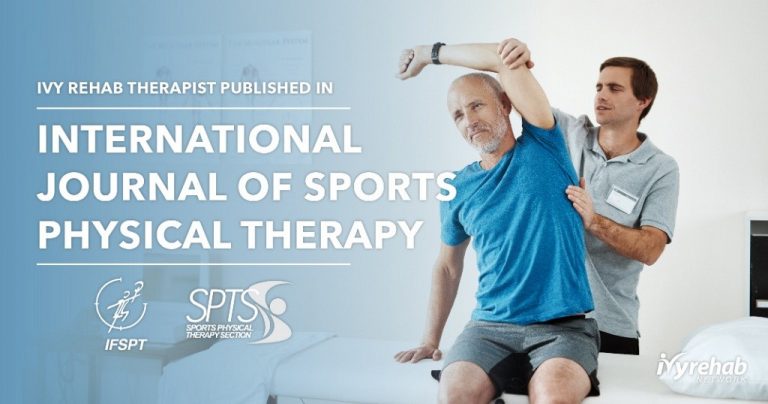
Ivy Rehab Therapist Published in International Journal of Sports Physical Therapy
One of Ivy Rehab’s clinicians, Joshua Smith, PT, DPT, assisted with data collection for a study titled ‘Intra- and Inter-Rater Reliability of the Selective Functional Movement Assessment (SFMA) in Healthy Participants’ that was published in the February ’19 issue of The International Journal of Sports Physical Therapy. The lead author of the study was Justin Stanek, Ed.D., ATC, an associate professor and researcher in the Athletic Training Department at Illinois State University (ISU). Also assisting with the data collection was Jacob Petrie, ATC, who was a senior athletic training student at ISU at the time and is currently a DPT student at Duke University.
The study examined the reliability of the Selective Functional Movement Assessment (SFMA) along with the reliability of the individual movements that make up the SFMA. The SFMA is an assessment tool used by physical therapists, athletic trainers, and other health care professionals that provides a quick snapshot of how a person performs everyday movement patterns. It helps identify impairments throughout the kinetic chain that may be contributing to movement dysfunction and/or pain. The research examined the reliability of the 10 top-tier movements of the SFMA using a categorical scoring system. Examples of the movements individuals perform when completing the SFMA include bending over and touching their toes, doing a squat, and reaching up behind their back with one arm.
The results of the study revealed stronger reliability among more experienced clinicians and also found that movements with objective scoring criteria had the highest reliability values.
Based on the study’s findings, Smith says that clinicians with training in the SFMA should be confident in its overall reliability but should be aware that some movements were shown to have greater reliability than others. “The SFMA top-tier assessment can usually be performed in 3 to 4 minutes and provides a quick snapshot of how well (or not well) a person moves,” Smith said. “This assessment is a tool that PTs and other rehab professionals can easily incorporate into practice.”
Smith also said that he gained a lot of respect for the research process and spoke about how it was nice to collaborate with a local university. “We often observe certain trends in the clinic or have questions related to the reliability of certain tests but do not have the time or resources to put together an actual study. Research guides our practice patterns and it is good when researchers and clinicians can work together to help answer these questions”. He hopes to continue to collaborate with ISU in the future.
The medical information contained herein is provided as an information resource only, and does not substitute professional medical advice or consultation with healthcare professionals. This information is not intended to be patient education, does not create any patient-provider relationship, and should not be used as a substitute for professional diagnosis, treatment or medical advice. Please consult with your healthcare provider before making any healthcare decisions or for guidance about a specific medical condition. If you think you have a medical emergency, call your doctor or 911 immediately. IvyRehab Network, Inc. disclaims any and all responsibility, and shall have no liability, for any damages, loss, injury or liability whatsoever suffered as a result of your reliance on the information contained herein.